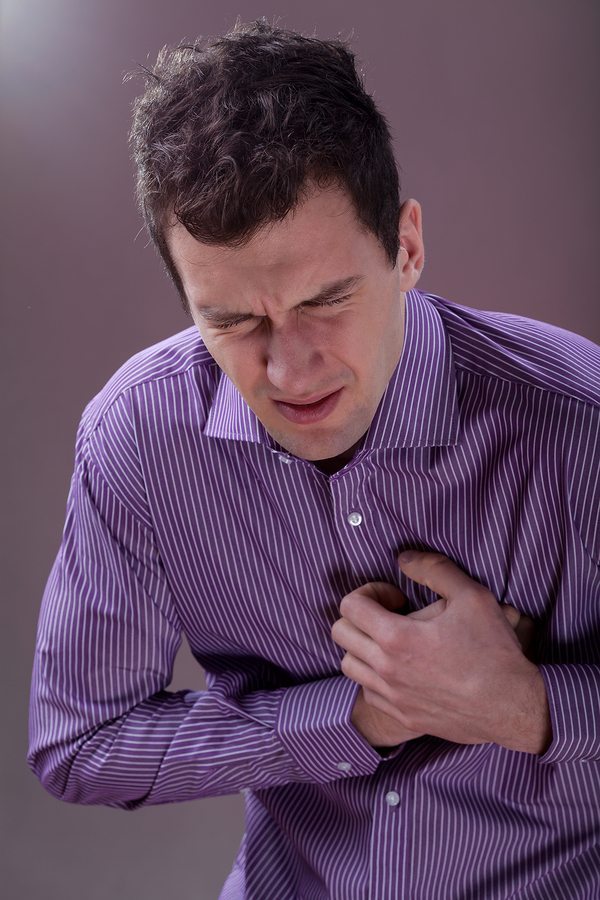Testosterone (Androgel, Axiron, Depo-Testosterone)
Testosterone therapy can help some men balance their hormone levels, but these medications can also cause serious side effects. For instance, men taking testosterone are more likely to experience a heart attack.
What is Testosterone Therapy?
Testosterone therapy treats men with low levels of testosterone, a condition known as hypogonadism or “low T.” This therapy is also known as androgen replacement therapy.
Men with low T experience a variety of issues such as:
- Erectile dysfunction (ED)
- Osteoporosis
- Loss of sex drive
- Depression
- Fatigue
- Loss of muscle mass
The symptoms of low T are non-specific, meaning other conditions can share these symptoms. Just because a man has several of the symptoms above, it does not mean he has low T.
Other issues can also cause low T. Obesity and type 2 diabetes can contribute to reduced testosterone levels. But these conditions are often reversed through diet and exercise.
There are a variety of testosterone medications that come in creams, gels, patches, injections and implantable pellets. Some popular brands of testosterone medications include:
- Androgel
- Androderm
- Axiron
- Fortesta
- Testapel
- Striant
- Delatestryl
- Testim
Only a slim percentage of men actually have low T. The British Medical Journal published a report on the rates of men with low T. The study found that 0.6 percent of men in their fifties have low T while only 0.1 percent of men in their forties have it.
Although the rates of men diagnosed with low T has remained relatively stable, the rates of men with prescription testosterone is on the rise. Critics have said the market for testosterone medication has expanded to men who don’t need it. Because the symptoms of low T are nonspecific, critics say most symptoms are simply factors of aging.
How does Testosterone Therapy work?
Low T develops when a male’s testicles or pituitary glands aren’t producing enough testosterone. Testosterone is the hormone that gives men an interest in sex, boosts muscle mass and bone density, and maintains facial and body hair.
Testosterone therapy is fairly straightforward — the medication increases hormone levels in men to alleviate symptoms of low T. This type of treatment generally requires periodic monitoring of hormone levels. Once a man begins testosterone therapy, the treatment is typically lifelong.
As men age, their levels of the hormone testosterone naturally decline. After age 30 or 40, most men experience a 1 percent decline in testosterone production every year. Yet, many men with naturally reduced testosterone take testosterone medication, which can lead to a heart attack or other health incidents.
SIDE EFFECTS of TESTOSTERONE THERAPY
 While testosterone therapy can be beneficial for some, these medications are linked to serious side effects. Some side effects of testosterone therapy may even be deadly.
While testosterone therapy can be beneficial for some, these medications are linked to serious side effects. Some side effects of testosterone therapy may even be deadly.
In 2013, the New York Times reported that “some researchers warn that men whose problems are not caused by low testosterone are also taking the drugs, potentially putting them at unneeded risks for side effects.”
Testosterone medications can also be a danger to women and children. Women and children can be accidentally exposed to topical testosterone gels and creams, which can cause unwanted hair growth, early puberty and unusual hormone levels.
Pharmaceutical companies have encouraged doctors to prescribe testosterone therapy to men who have symptoms of low T.
Common Side Effects
- Acne
- Difficult or frequent urination
- Blood clots
- Enlarged breasts
- Decreased sperm production
Serious Side Effects
- Heart attack
- Stroke
- Sleep apnea
- Blood clots
- Worsening of existing prostate cancer
Who is at Risk?
 Various reports claim that children who come in contact with an adult after using testosterone gel may experience adverse side effects. Since the gel is to be applied to the upper arms or shoulders, adults must take extra caution and cover up afterwards. If children accidentally come in contact with the medicated area, abnormal effects may include:
Various reports claim that children who come in contact with an adult after using testosterone gel may experience adverse side effects. Since the gel is to be applied to the upper arms or shoulders, adults must take extra caution and cover up afterwards. If children accidentally come in contact with the medicated area, abnormal effects may include:
- Premature development of pubic hair
- Advanced bone age
- Increased libido
- Aggressive behavior
Many testosterone gels now have a black box warning from the FDA to reduce the risk of children coming in contact with the product. In addition to children not touching the gel after it’s applied, adults using testosterone gels should:
- Wash hands with soap and water after every application
- Cover the application site with clothing
- Wash the site where the gel was applied before coming into skin contact with a child
Evidence of Testosterone Therapy Complications
 Studies have found that testosterone therapy can increase the risk of heart attack in men of all ages. Further research is required to determine if the risks outweigh the benefits for some men.
Studies have found that testosterone therapy can increase the risk of heart attack in men of all ages. Further research is required to determine if the risks outweigh the benefits for some men.
A study in the New England Journal of Medicine found that men on testosterone therapy are 4 times more likely to have cardiovascular complications, including heart attack.
As of 2015, the Food and Drug Administration (FDA) began requiring more stringent warning labels on testosterone-boosting drugs.
The FDA also said, “The benefit and safety of these medications have not been established for the treatment of low testosterone levels due to aging, even if a man’s symptoms seem related to low testosterone.”
The scientific understanding of hypogonadism is still limited and medical professionals disagree about the appropriate uses of testosterone therapy.
Some doctors call it an effective treatment for men with low vitality and ED. Other doctors point to other factors such as weight gain and illness for low testosterone levels, saying testosterone therapy is unnecessary. But the fact remains that these drugs carry tangible risks to the men taking them.
The symptoms common to low T are often considered a normal part of aging. Few men are actually diagnosed with clinical low T. Testosterone therapy was initially intended to treat low T caused by genetics, chemotherapy and testicular damage.
Drug Reactions with Testosterone Therapy
Certain drugs may have an interaction with Testosterone Therapy. Provide a list of specific drugs – both prescription and over-the-counter – to your doctor before taking any form of Testosterone Therapy.
Research suggests that some drugs can cause reactions with Testosterone Therapy
Some of the drugs include:
- Arava (leflunomide)
- Aubagio (teriflunomide)
- Coumadin (warfarin)
- Juxtapid (lomitapide)
- Miradon (anisindione)
- Kynamro (mipomersen)
Learn More About Testosterone Side Effects
Men who experienced complications from taking testosterone medications have filed complaints against the drug manufacturers for heightened risk of heart disease, increase of blood clots, noncancerous growth of the prostate, limit in sperm production and potential to develop sleep apnea.
Last Edited: September 19, 2016